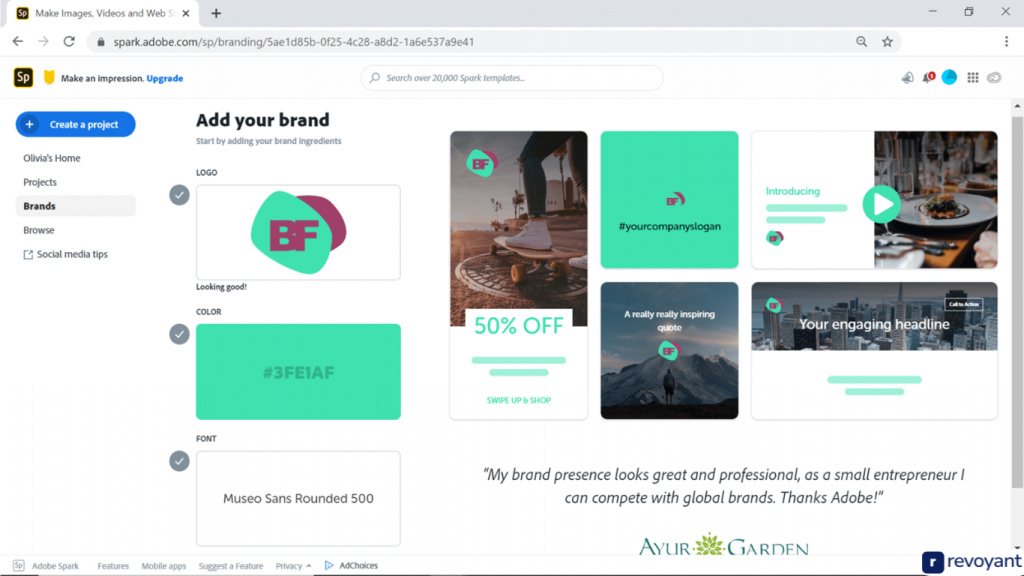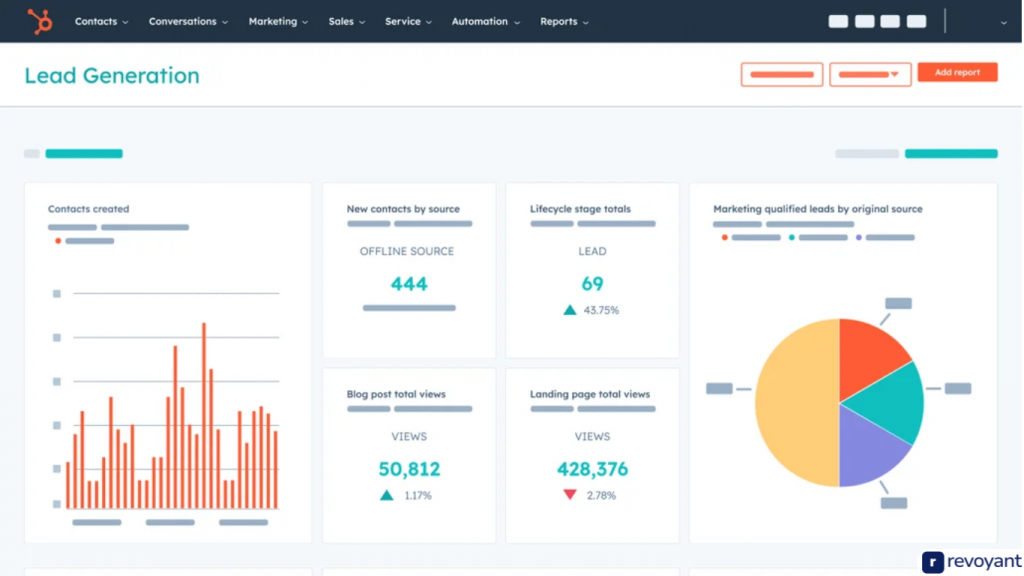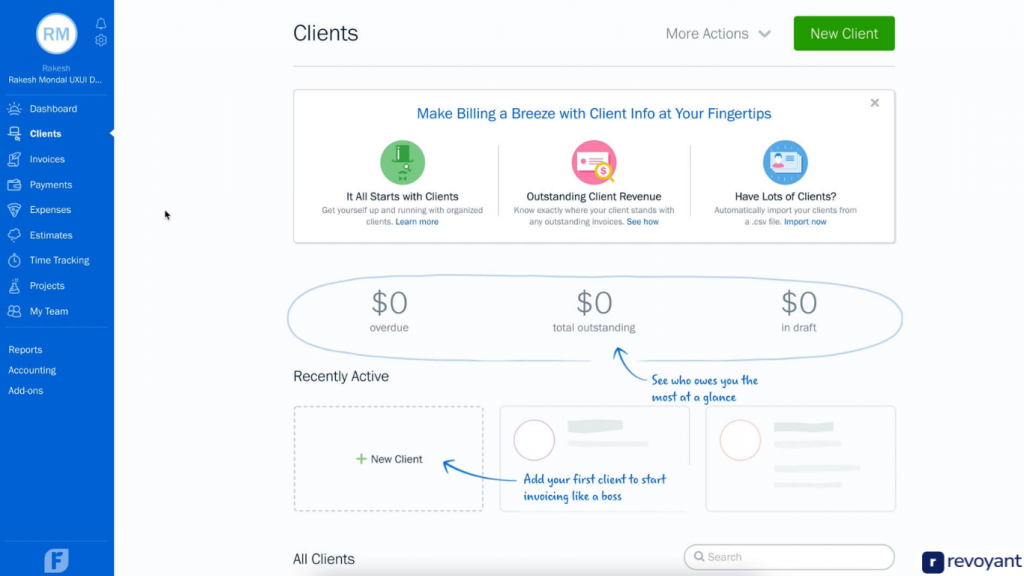In the competitive landscape of B2B marketing, companies are continually seeking innovative strategies to enhance their customer acquisition and retention efforts. One increasingly popular approach is B2B affiliate marketing.
This performance-based model allows businesses to partner with affiliates—individuals or organizations that promote products and services in exchange for commissions on sales generated through their referrals.
Key Takeaways
- Broaden Your Reach: B2B affiliate marketing allows companies to tap into new customer segments and markets that may not be accessible through traditional marketing channels.
- Enhance Credibility: Partnering with reputable affiliates helps build trust and authority, which are critical in B2B purchasing decisions.
- Cost-Effective Model: This performance-based approach means businesses only pay for successful conversions, minimizing wasted marketing resources.
- Data-Driven Insights: Affiliate programs provide valuable data about lead sources, helping companies understand which affiliates drive the most engagement and conversions.
- Community Building: Successful B2B affiliate marketing fosters a network of advocates who actively promote your brand, increasing visibility and customer loyalty.
Understanding B2B Affiliate Marketing
B2B affiliate marketing has become a crucial strategy for businesses aiming to enhance their customer acquisition efforts. In this performance-based model, B2B companies partner with affiliates—individuals or organizations that promote products or services in exchange for a commission on sales generated through their efforts.
This approach leverages the trust and credibility established by affiliates within their networks, enabling B2B companies to access new audiences and increase their market share effectively.
Key Strategies for B2B Affiliate Marketing
B2B affiliate marketing can be a game-changer for companies looking to enhance their reach and drive sales. However, executing a successful program requires careful planning and strategic execution.
Identify the Right Affiliates
Selecting the right affiliates is crucial to the success of your program. Focus on partners who align closely with your target market. Here’s how to approach this:
- Target Market Alignment: Look for affiliates who cater to similar customer segments. This could include industry influencers, thought leaders, or organizations with a strong reputation in your niche. Their audience should overlap with yours, ensuring that your product resonates with potential customers.
- Engagement and Content Quality: Evaluate the engagement levels of potential affiliates, such as their social media following, website traffic, and interaction rates. High-quality content is essential; ensure they produce informative, authentic, and engaging material that effectively communicates your brand’s value.
- Reputation and Trustworthiness: Research the affiliates’ reputation in the industry. Affiliates who are well-respected and trusted by their audience will enhance your brand’s credibility when promoting your products or service
Offer Competitive Commissions
Attracting and retaining high-performing affiliates requires a competitive commission structure. Consider the following:
- Attractive Commission Rates: Offer commissions that are appealing compared to industry standards. A higher commission can motivate affiliates to prioritize promoting your brand over others.
- Tiered Commission Structures: Implement a tiered system where affiliates earn higher commissions based on their sales volume. This structure incentivizes top performers to increase their efforts, fostering a competitive environment that drives results.
- Incentives and Bonuses: In addition to standard commissions, consider offering bonuses for affiliates who hit specific sales targets or achieve milestones. These incentives can motivate affiliates to maximize their promotional activities.
Provide Comprehensive Resources:
Equipping affiliates with the right resources is key to ensuring effective promotion. Here’s how to do it:
- High-Quality Marketing Materials: Supply affiliates with a suite of marketing materials, including banners, email templates, case studies, and promotional videos. This makes it easier for them to create content that accurately represents your brand.
- Clear Value Proposition: Clearly communicate your value proposition, unique selling points, and key benefits of your product or service. The more informed affiliates are, the more effectively they can convey this to their audience.
- Training and Support: Offer training sessions that help affiliates understand your products, sales techniques, and marketing strategies. Ongoing support ensures they feel equipped and confident in promoting your offerings.
Leverage Performance Tracking
Monitoring affiliate performance is essential for refining your strategy. Use the following tools:
- Affiliate Management Software: Platforms like Refersion, Impact, or PartnerStack can streamline the management of your affiliate program. These tools allow you to track referrals, manage payouts, and monitor overall performance.
- Analytics and Reporting: Utilize the analytics capabilities of these tools to gain insights into which affiliates are driving the most traffic and conversions. Identify effective promotional strategies and replicate these across your affiliate network.
- Data-Driven Decision Making: Use performance data to make informed decisions about your affiliate program. If certain affiliates or strategies are underperforming, be willing to adjust your approach to maximize results.
Build Strong Relationships
Maintaining strong relationships with your affiliates fosters loyalty and encourages better performance. Consider the following practices:
- Regular Communication: Engage with your affiliates through regular updates, newsletters, or personal check-ins. Keeping the lines of communication open ensures affiliates feel valued and informed about your brand.
- Ongoing Support and Resources: Provide continuous support and resources, including performance updates and marketing tips. This not only enhances their promotional efforts but also builds trust and loyalty.
- Networking Opportunities: Create opportunities for affiliates to connect with each other and with your team. Networking can lead to collaborative efforts and the sharing of best practices, benefiting all parties involved.
Create Exclusive Offers
Exclusive offers can be a powerful motivator for both affiliates and potential customers. Here’s how to implement them effectively:
- Unique Discounts: Develop special discounts or offers that affiliates can promote exclusively. This creates a sense of urgency and can encourage potential customers to act quickly.
- Limited-Time Promotions: Consider running time-sensitive promotions that affiliates can share with their audience. This urgency can drive higher conversion rates as potential customers feel compelled to take action before the offer expires.
- Exclusive Content: Provide affiliates with access to unique content, such as webinars, whitepapers, or e-books, that they can offer to their audience. Exclusive content enhances their credibility and provides additional value to their followers.
Tools and Technologies for B2B Affiliate Marketing
Leveraging the right tools and technologies is crucial for the success of B2B affiliate marketing. These resources not only streamline processes but also enhance communication and provide valuable insights into performance. Here’s a deeper look into essential tools for managing and optimizing your B2B affiliate marketing efforts:
Affiliate Management Software
Platforms like Refersion, Impact, and PartnerStack serve as the backbone of your affiliate program. They allow you to:
- Streamline Management: Easily onboard affiliates, set up commission structures, and manage payouts all in one place.
- Track Referrals: Monitor which affiliates are generating traffic and conversions, providing transparency and accountability.
- Automate Payments: Handle commission payments seamlessly, reducing administrative burden and ensuring timely payouts to affiliates.
- Access Reporting: Generate detailed reports that highlight performance metrics, helping you make informed decisions about your affiliate strategy.
Analytics Tools
To optimize your B2B affiliate marketing efforts, it’s essential to understand the data behind your campaigns. Tools like Google Analytics, Mixpanel, or Kissmetrics enable you to:
- Analyze Traffic Sources: Determine where your affiliate traffic is coming from and which channels are most effective.
- Track Conversions: Measure how well affiliates convert leads into customers, allowing you to assess ROI on your affiliate partnerships.
- Identify Trends: Spot patterns in user behavior that can inform your marketing strategies and help you tailor your approach to different customer segments.
- Segment Data: Break down performance metrics by different criteria, such as affiliate type or campaign, to better understand what drives success.
Content Creation Tools
Providing affiliates with high-quality marketing materials is vital for consistent brand messaging. Tools like Canva and Adobe Spark help affiliates:
- Design Custom Materials: Create visually appealing banners, social media posts, and promotional graphics that align with your brand identity.
- Maintain Brand Consistency: Ensure that all marketing materials adhere to your brand guidelines, reinforcing your company’s image and messaging.
- Empower Creativity: Equip affiliates with user-friendly design tools that allow them to personalize their promotional content while staying on-brand.

CRM Software
Utilizing Customer Relationship Management (CRM) systems like HubSpot or Salesforce can significantly enhance your affiliate management. These tools allow you to:
- Manage Relationships: Keep track of communications and interactions with affiliates, fostering stronger partnerships.
- Segment Affiliates: Categorize affiliates based on performance, niche, or engagement levels, allowing for more targeted communication and support.
- Automate Follow-Ups: Set reminders and automate follow-up emails to ensure that you maintain regular contact with affiliates, keeping them engaged and informed.
- Integrate Data: Link affiliate performance data with your broader marketing and sales efforts, providing a holistic view of your business’s performance.
Email Marketing Platforms
Effective communication is key to maintaining a successful affiliate program. Platforms like Mailchimp and ActiveCampaign enable you to:
- Automate Communication: Set up automated email campaigns to keep affiliates informed about new products, promotions, and performance updates.
- Send Performance Reports: Regularly provide affiliates with insights into their performance, motivating them to improve their promotional efforts.
- Segment Audiences: Tailor email content based on affiliate performance or engagement levels, ensuring that the information you share is relevant and actionable.
- Track Engagement: Monitor how affiliates interact with your emails, allowing you to refine your communication strategies based on their preferences.
Best Practices for B2B Affiliate Marketing
Implementing best practices in B2B affiliate marketing is essential for building a successful and sustainable program. By fostering strong relationships with affiliates and ensuring clear communication, companies can maximize the impact of their affiliate marketing efforts. Here’s a deeper look into the best practices that can enhance your B2B affiliate marketing strategy:
Maintain Transparency
Transparency is the cornerstone of a successful affiliate program. To build trust with your affiliates, consider the following:
- Clear Program Guidelines: Develop comprehensive documentation outlining the terms of the affiliate program, including commission structures, payment schedules, and promotional guidelines. Make this information easily accessible to all affiliates.
- Regular Updates: Keep affiliates informed about product updates, changes in policies, and upcoming promotions. Use newsletters or dedicated communication channels to share important information.
- Performance Metrics: Share performance data with your affiliates to help them understand how their efforts contribute to the overall success of the program. Highlight top-performing affiliates to encourage healthy competition and motivation.
Ensure Compliance
Compliance with legal and ethical standards is vital for maintaining the integrity of your affiliate program. Focus on:
- Regulatory Adherence: Familiarize yourself and your affiliates with relevant regulations, such as the Federal Trade Commission (FTC) guidelines in the U.S. Ensure that all affiliates are aware of these requirements and adhere to them.
- Disclosure Requirements: Encourage affiliates to disclose their relationship with your brand in their promotions. This can include clear statements that they may receive commissions for sales generated through their links, fostering trust with their audience.
- Monitoring for Compliance: Regularly review affiliate content to ensure compliance with your guidelines and applicable regulations. This proactive approach can prevent potential issues and protect your brand’s reputation.
Encourage Content Creation
Authentic and engaging content can significantly enhance the effectiveness of your affiliate marketing efforts. Here’s how to inspire affiliates to create compelling content:
- Provide Resources: Equip affiliates with high-quality assets, such as product images, videos, and case studies, to assist them in creating informative content.
- Foster Creativity: Encourage affiliates to produce original content, such as blog posts, video reviews, or social media shares that resonate with their audience. This can help personalize the promotion of your products and build genuine connections.
- Highlight Success Stories: Showcase successful content created by affiliates to inspire others. Sharing examples of effective campaigns can motivate affiliates to try new approaches and improve their promotional efforts.
Focus on Quality Affiliates
Rather than aiming for quantity, prioritize building relationships with high-quality affiliates. Consider the following strategies:
- Thorough Selection Process: Assess potential affiliates based on their audience, engagement levels, and relevance to your niche. Look for partners who align with your brand values and can authentically represent your offerings.
- Nurturing Relationships: Invest time in building strong relationships with your top affiliates. Regularly engage with them, offer support, and acknowledge their contributions to your program. This personalized approach fosters loyalty and encourages long-term partnerships.
- Performance-Based Recognition: Reward high-performing affiliates through exclusive bonuses or enhanced commission structures. This not only incentivizes them to continue promoting your products but also strengthens your partnership.
Continuously Monitor and Optimize
An effective B2B affiliate marketing program requires ongoing assessment and refinement. To ensure continuous improvement:
- Regular Performance Tracking: Use analytics tools to monitor affiliate performance, tracking metrics such as traffic generated, conversions, and return on investment (ROI). This data is crucial for understanding which affiliates are delivering results and which strategies are most effective.
- Identify Best Practices: Analyze successful campaigns to uncover best practices and tactics that drive results. Share these insights with your affiliates, enabling them to replicate success across their promotions.
- Adjust Strategies: Be flexible and willing to pivot your approach based on performance data. If certain affiliates or strategies are underperforming, consider re-evaluating your tactics, offers, or support mechanisms to improve outcomes.
Successful B2B Affiliate Marketing: Case Studies
Case studies from three industry leaders—HubSpot, FreshBooks, and ClickFunnels—who have successfully implemented B2B affiliate marketing programs. Each example highlights unique strategies, effective practices, and key outcomes that illustrate the potential of affiliate marketing in the B2B space.
HubSpot
HubSpot has positioned itself as a leader in inbound marketing and sales software, and its affiliate program exemplifies an effective B2B affiliate marketing strategy. By collaborating with industry influencers and thought leaders, HubSpot leverages the authority and reach of its affiliates to broaden its audience. Key aspects of their approach include:
- Attractive Commission Structure: HubSpot offers competitive commissions that incentivize affiliates to promote their products vigorously. This financial motivation is crucial in driving affiliate engagement and performance.
- Rich Resource Library: Affiliates benefit from a comprehensive suite of marketing materials, including banners, email templates, and product guides. This wealth of resources simplifies the promotional process, enabling affiliates to create high-quality content that resonates with their audience.
- Ongoing Training and Support: HubSpot invests in continuous education for its affiliates, providing training sessions and detailed product insights. This commitment not only empowers affiliates to better understand the software but also equips them with the tools needed to communicate its value effectively.
As a result of these strategies, HubSpot has cultivated a loyal community of affiliates who actively generate leads and conversions, reinforcing the company’s reputation as a trusted authority in marketing technology.

FreshBooks
FreshBooks, a cloud-based accounting software tailored for small business owners and freelancers, has crafted a targeted B2B affiliate marketing program that aligns perfectly with its audience. Key elements of FreshBooks’ strategy include:
- Tailored Content Development: FreshBooks equips affiliates with engaging, targeted content that addresses the specific needs of small business owners. This includes practical guides, video tutorials, and insightful blog posts that highlight the software’s benefits and ease of use.
- Strong Affiliate Support: The company places a premium on building solid relationships with its affiliates, offering robust support systems. This includes regular updates, access to marketing resources, and direct communication channels for assistance.
- Performance-Based Incentives: FreshBooks motivates affiliates through performance incentives, including bonuses for achieving sales milestones. This creates a competitive environment that encourages affiliates to enhance their promotional efforts.
By prioritizing content relevance and providing comprehensive support, FreshBooks has established a dedicated network of affiliates that consistently drive quality leads and conversions, significantly contributing to the company’s growth.

ClickFunnels
ClickFunnels has established a powerful B2B affiliate marketing program that has been pivotal in its customer acquisition strategy. The key components of ClickFunnels’ approach include:
- High Commission Rates: Offering some of the most generous commission rates in the industry, ClickFunnels incentivizes affiliates not just with one-time commissions but also recurring commissions on subscription services. This structure encourages affiliates to promote ClickFunnels as a long-term solution for their audience.
- Extensive Educational Resources: ClickFunnels prioritizes affiliate education by providing extensive training materials, including webinars, instructional videos, and a dedicated affiliate resource center. This focus on education empowers affiliates to effectively market the platform and address potential customers’ questions and concerns.
- Engaged Community Support: The ClickFunnels affiliate program fosters community through forums and social media groups where affiliates can share best practices, strategies, and success stories. This collaborative environment enhances affiliate engagement and loyalty.

Conclusion
By implementing these strategies and best practices, B2B companies can effectively leverage affiliate marketing to enhance visibility, expand reach, and drive meaningful customer acquisition. This collaborative approach not only boosts sales but also fosters long-term relationships with partners that contribute to sustained growth.
Frequently Asked Questions
1. What is B2B affiliate marketing?
B2B affiliate marketing involves partnering with individuals or organizations that promote your products or services in exchange for a commission on sales generated through their referrals.
2. How do I choose the right affiliates?
Select affiliates whose audience aligns with your target market and assess their credibility and engagement levels. Look for partners with a strong online presence and a genuine interest in your offerings.
3. What tools can I use for managing my affiliate program?
Utilize affiliate management tools like Refersion, Impact, and PartnerStack to manage affiliates, track performance, and handle commission payments.
4. How can I motivate my affiliates?
Provide competitive commissions, valuable resources, maintain open communication, and create exclusive offers to encourage performance among your affiliates.





